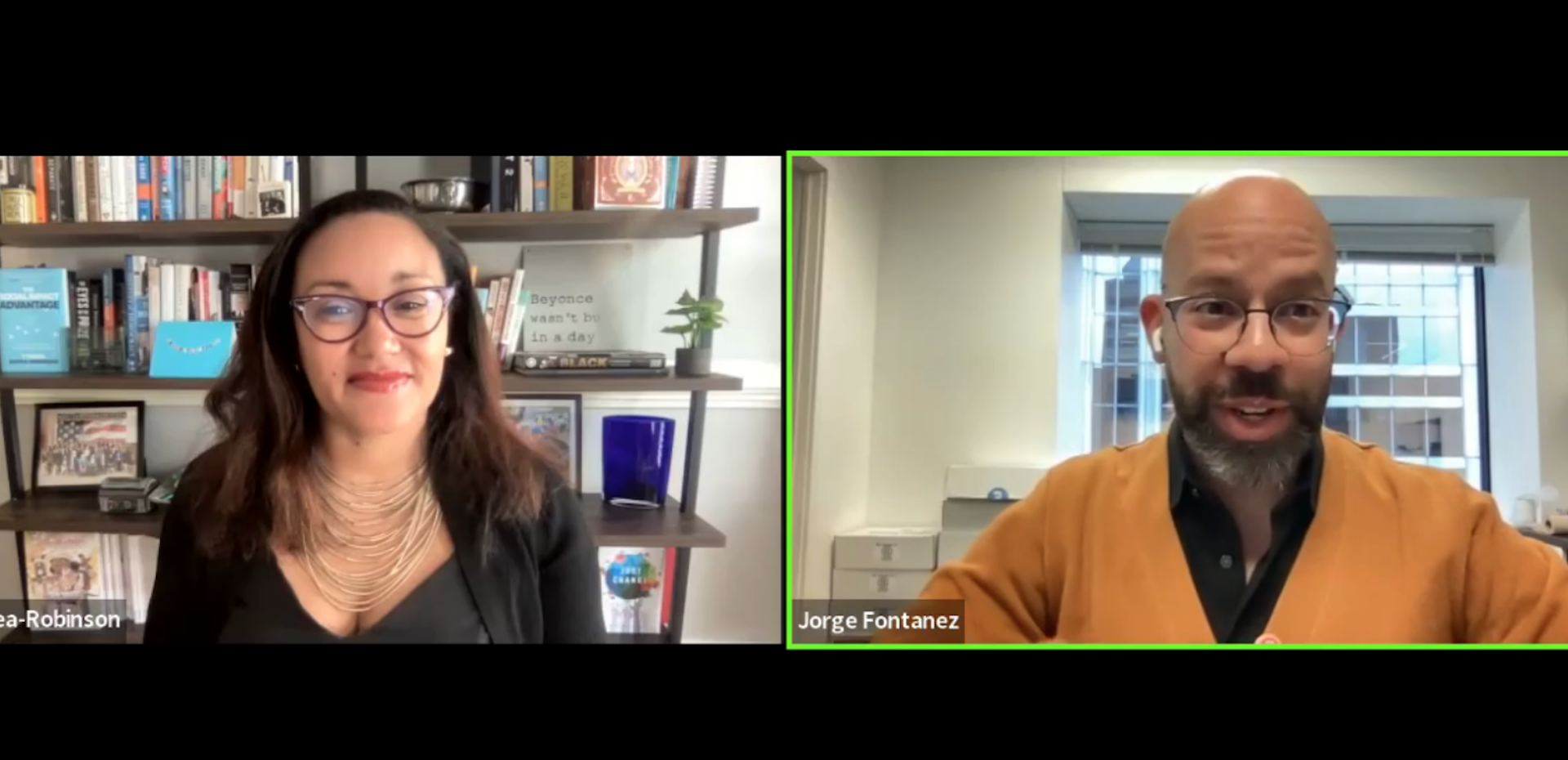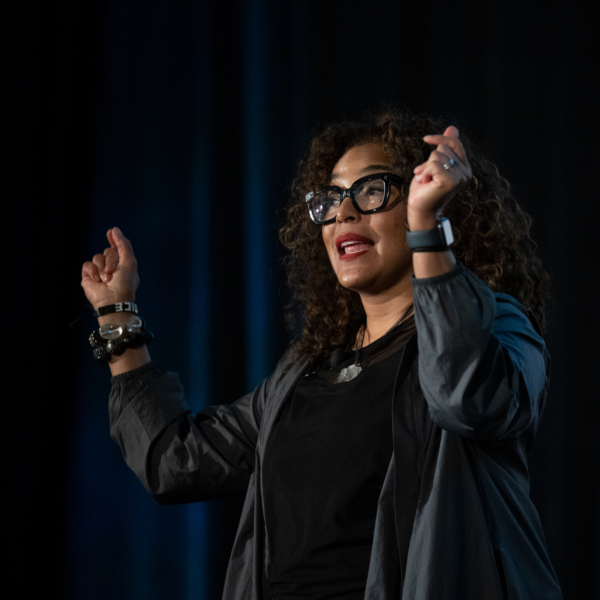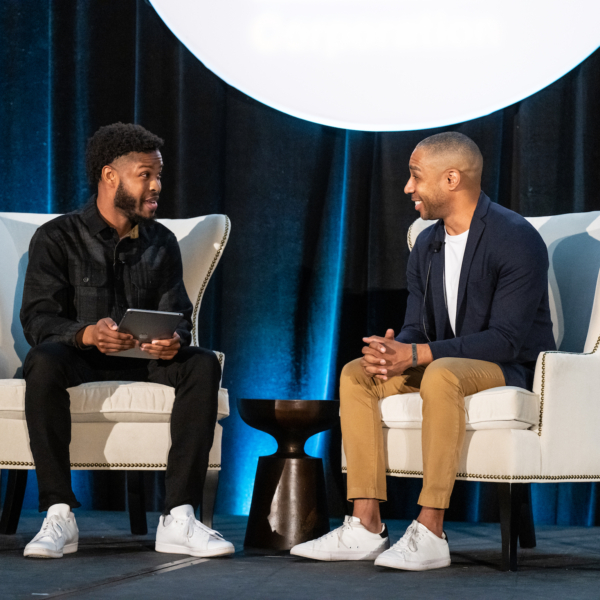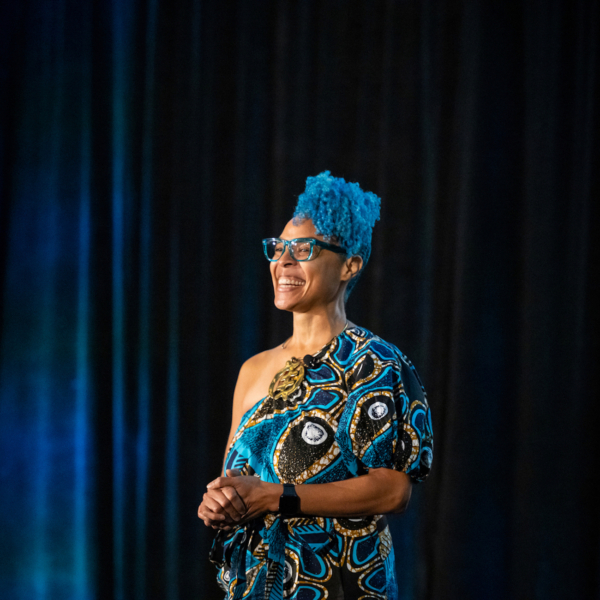How to Promote Racial Equity in the Workplace
February 28, 2023
Helping Companies Build a Diverse Workforce and a Healthy Bottom Line
“If you care about DEI, it has to be front and center in what you do.” — Tynesia Boyea-Robinson, President and CEO of CapEQ
Business leaders are recognizing that learning how to promote racial equity in the workplace is becoming — and should be — a business imperative. Consumers, workers, and other stakeholders increasingly expect companies to improve their social and environmental impact, going beyond pledges and promises to tangible action and measurable positive change. This transition must include questioning Milton Friedman’s shareholder primacy doctrine that, since 1970, has led companies and corporate law to prioritize profit as the sole goal of a business.
A growing number of business leaders, including those in the Certified B Corporation community, are realizing the need to challenge that mindset and instead move toward a more equitable, inclusive, and regenerative economy to better serve all people and the planet. Tynesia Boyea-Robinson, President and CEO of CapEQ, is among those leaders exploring how to promote racial equity in the workplace through the core operation and mission of the business — not as an addendum — and improve the organization’s overall social and environmental impact.
During a recent LinkedIn Live conversation with Jorge Fontanez, CEO of B Lab U.S. & Canada, she pushed back on the notion of profit primacy in business. “This concept that capitalism has to be at the expense of others is actually false,” Boyea-Robinson said.
“There’s $30 trillion of wealth changing hands from people who are used to the Milton Friedman way of doing business to those who care about how their money lands — where it lands in communities and whether or not it’s making a difference.”
She has seen this shift in her work with Fortune 500 clients who are looking to promote racial equity in the workplace and change the way they do business. Her recent book, The Social Impact Advantage: Win Customers and Talent By Harnessing Your Business For Good, shares lessons from her experiences as an entrepreneur, technologist, and consultant helping companies broaden their focus to include multiple stakeholders. “You’re also seeing that consumers are not just paying a premium for products and services that are actively not just neutral but actively doing well,” Boyea-Robinson said. “And you’re seeing that it’s difficult to recruit people, particularly millennials, to the workforce if you don’t have a social purpose, either somewhere embedded in your business model or at least living those values in what you do.”
By prioritizing investors, consumers, and workers — key stakeholders — in their policies and practices, B Corps and other companies can create more inclusive and resilient businesses and communities. Boyea-Robinson said her book is designed to help those making the move from a shareholder-first mindset, who may be unfamiliar with the social and environmental impact focus at the heart of a stakeholder-driven economy.
“As someone who’s been working with these organizations for a while, I wrote the Social Impact Advantage in order to make sure that there was accessible, straightforward content that could help a beginner who’s just starting on this journey of embedding equitable impact,” she said. “For us, equitable impact is the intersection of the integration of diversity, equity, and inclusion (DEI), and environmental, social, and governance (ESG). So those two are hand in hand.”
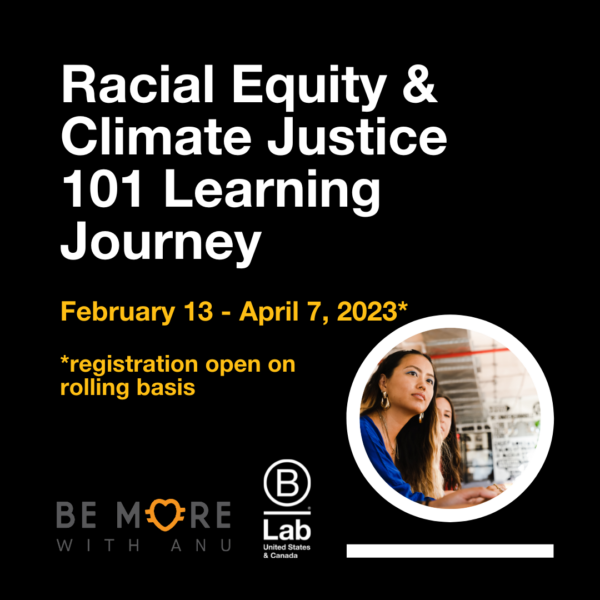
Join the Learning Journeys
B Lab U.S. & Canada’s Racial Equity and Climate Justice teams are offering a Learning Journey of trainings to help the B Corp community strengthen its knowledge of racially equitable, inclusive, and climate justice-centered business practices. Journeys are self-paced through April 7.
3 Questions to Help Determine How to Promote Racial Equity in the Workplace
During the recent LinkedIn Live event, Boyea-Robinson and Fontanez discussed the ways businesses can promote racial equity in the workplace by examining how they make their money, how they spend their money, and how they invest in their people. This is what Boyea-Robinson calls “the holy trinity of capitalism,” which includes both opportunities and necessities.
• A More Equitable Bottom Line: How Do You Make Your Money? As Boyea-Robinson said, “how you make your money is really about anything related to your core business model and how you generate profit or revenue.” To create lasting and meaningful impact, business leaders should connect their impact work to their company’s market and strengths. “When you think about the measures specific to your business, it should be at the intersection of the root cause of the problem your business is trying to solve, the values of your organization, and the unique resources you bring to bear on that,” she said. “We’re also seeing that consumers are sniffing out when things are inauthentic.”
For example, transportation companies can consider how their business model may affect environmental conditions in communities of color, and the subsequent social impacts. “If you care about DEI, it has to be front and center in what you do,” Boyea-Robinson said. “Think beyond statements … are your policies aligned with that? Is it consistent in your strategy and your strategic plan?”
• A More Equitable Supply Chain: How Do You Spend Your Money? Each company’s supply chain presents another opportunity to build social equity and improve impact, Boyea-Robinson said. “Everybody has to buy everything: from paper to chairs, to the computers. Are you using that spending in a way that’s actually uplifting communities?” she said. “It has to be core to every aspect of your business.”
Fontanez said the supply chain is a crucial impact tool for B Corps and a community built on the value of interdependence. “It’s important to understand how a company’s own supply chain can also create value.”
• A More Equitable Workforce: How Do You Invest in Your People? Fontanez said businesses don’t need to micromanage to create more equitable policies and practices. “Policies that look at the most marginalized employees or workers in your company are the ones that will work for everyone,” he said. Growing income inequality makes it a business imperative to broaden economic opportunity for all people, he said, especially those who historically have been excluded or overlooked. “How do we think about hiring Black, Indigenous, People of Color talent in a way that doesn’t look like we’re creating quotas, but rather we’re creating cultures of inclusivity?”
DEI initiatives must go beyond hiring a more diverse workforce and involve centering the needs of employees. “It has to be around making sure there are benefits that are aligned with the needs of your workforce,” Boyea-Robinson said.
“The first community you serve as a business is actually your employees. People think it’s the customer, but the people you touch most immediately and most frequently are the people who work for you.”
They can include benefit programs designed to support a range of workers, Boyea-Robinson said, pointing to examples like the Income Advance program created by Rhino Foods that helps workers maintain employment through short-term financial challenges and build savings for the future. “Oftentimes frontline workers and low-income workers, they’re one paycheck away from a major emergency,” she said. “That doesn’t mean they’re not solid workers. That doesn’t mean they’re not talented. It means that they have a different set of needs.”
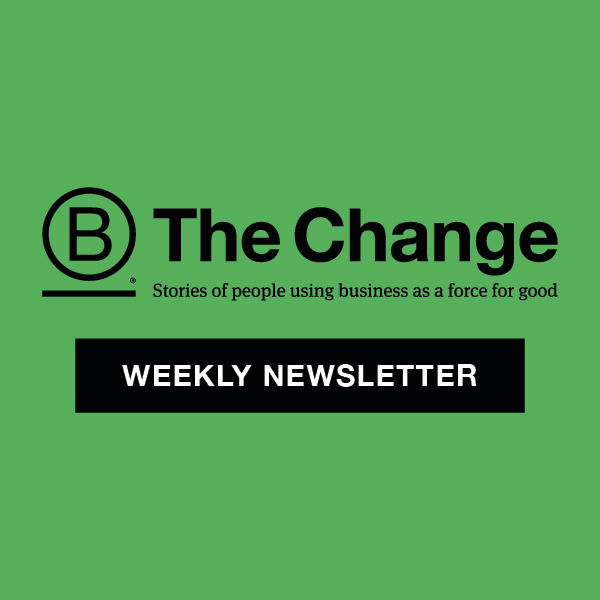
Subscribe to B The Change Weekly
Learn more about the growing movement of Certified B Corporations using business as a force for good, and sign up to receive the B The Change Weekly newsletter for more stories like this one, delivered straight to your inbox once a week.
Moving from Statements to Action: How to Promote Racial Equity in the Workplace
By considering those three questions and making changes to create benefits for shareholders, consumers, and workers, companies can have a broader positive impact on their communities as well. Paying a living wage, for example, creates ripples that flow beyond a single company’s workforce. But Boyea-Robinson said companies can collaborate with other partners to amplify the impact of large developments so they create opportunities rather than roadblocks.
“Oftentimes, companies are building or investing in cities or investing in places,” she said. “You have to work backward from how long would it take for me to train people to be ready for these new jobs that are coming? What partnerships do I need to put in place?” CapEQ works with community partners to establish policies that incorporate education partnerships, training, and other programs that ensure cities remain livable for diverse populations. “People have to be intentional about it and give themselves enough lead time to really make it happen,” Boyea-Robinson said.
Going beyond DEI commitments to take meaningful action requires time and commitment, she said. “It’s not something you can do in three months or even six months. It has to be a long-term strategic plan.” The B Corp community offers several examples of programs that help take steps toward a more equitable, inclusive economy:
- Change Is Brewing, a limited-batch ice cream flavor from Ben & Jerry’s, which includes cold brew coffee Black and Bold, a Black-owned B Corp dedicated to helping youth in need. This ice cream flavor is part of a Ben & Jerry’s advocacy campaign in support of the right to vote.
- The Black Hive Collection builds off Bombas’ buy one, give one program and contributes to Black-led organizations working to reduce homelessness in communities.
- Open Hiring, a program launched at Greyston Bakery that has been adopted by The Body Shop and other larger employers. This policy that removes barriers to employment also helps reduce workforce turnover and increase worker productivity and morale.
Sign Up for our B The Change Newsletter
Read stories on the B Corp Movement and people using business as a force for good. The B The Change Newsletter is sent weekly.
